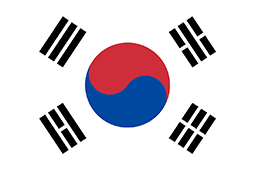
Korea's SK readies output cuts as crude cargoes back up

The operating rate may have to be cut to around 60-70pc of capacity in June-July, said SK, which has pared crude runs to 85pc since the beginning of March because of slumping fuel demand. The company said the plant's residual oil crackers have been throttled back to a reduced operating rate for the first time in three decades for a reason other than maintenance or repairs. SK sees the crackers slowing to about a 70pc operating rate by June.
SK has run out of space to store the crude shipments that it is obligated to receive under long-term supply contracts, with demand for jet fuel, gasoline and other products slumping as the pandemic stalls economies around the globe. Its storage tanks in Ulsan are full to the brim, holding about 12mn bl, and a recent agreement to lease 1.8mn bl of storage capacity from state-run oil company KNOC in Daesan, southwest of Seoul, has done little to ease the pressure.
The company said it has been left with no other choice than to delay taking delivery of some arriving crude shipments. And SK incurs higher costs as tankers wait at sea off Ulsan, essentially serving as floating storage vessels. The refiner must pay 100mn won ($81,300) per day, depending on the size of the tanker, while the ships wait at sea to bring in their cargoes.
Exports typically account for more than half the sales of South Korean refiners. The Covid-19 outbreak has sharply reduced demand in the country's key export markets, such as China. Vietnam's state-run oil company PetroVietnam is lobbying Hanoi to completely halt products imports to bolster the domestic refining industry.
South Korea's government is planning additional support measures for the country's refiners after earlier this month agreeing to defer import taxes, make state-owned storage space available to lease and make more purchases for its strategic petroleum reserves.
By Tony Cox


Trump weighs using $2 billion in CHIPS Act funding for critical minerals

Codelco cuts 2025 copper forecast after El Teniente mine collapse

Electra converts debt, launches $30M raise to jumpstart stalled cobalt refinery

Abcourt readies Sleeping Giant mill to pour first gold since 2014

Barrick’s Reko Diq in line for $410M ADB backing

Nevada army depot to serve as base for first US strategic minerals stockpile

Tailings could meet much of US critical mineral demand – study

Viridis unveils 200Mt initial reserve for Brazil rare earth project

SQM boosts lithium supply plans as prices flick higher

Energy Fuels soars on Vulcan Elements partnership

Northern Dynasty sticks to proposal in battle to lift Pebble mine veto

Giustra-backed mining firm teams up with informal miners in Colombia

Critical Metals signs agreement to supply rare earth to US government-funded facility

China extends rare earth controls to imported material

Galan Lithium proceeds with $13M financing for Argentina project

Silver price touches $39 as market weighs rate cut outlook

First Quantum drops plan to sell stakes in Zambia copper mines

Ivanhoe advances Kamoa dewatering plan, plans forecasts

Texas factory gives Chinese copper firm an edge in tariff war

Energy Fuels soars on Vulcan Elements partnership

Northern Dynasty sticks to proposal in battle to lift Pebble mine veto

Giustra-backed mining firm teams up with informal miners in Colombia

Critical Metals signs agreement to supply rare earth to US government-funded facility

China extends rare earth controls to imported material

Galan Lithium proceeds with $13M financing for Argentina project

Silver price touches $39 as market weighs rate cut outlook

First Quantum drops plan to sell stakes in Zambia copper mines

Ivanhoe advances Kamoa dewatering plan, plans forecasts

















